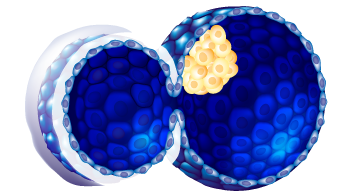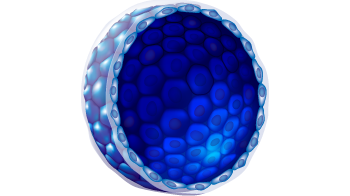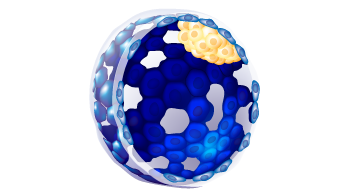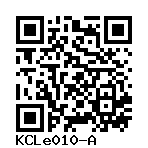KCL013_HD4
KCLe010-A
General
Cell Line |
|
| hPSCreg name | KCLe010-A |
| Cite as: | KCLe010-A (RRID:CVCL_A247) |
| Alternative name(s) |
KCL013_HD4
|
| Cell line type | Human embryonic stem cell (hESC) |
| Similar lines |
RCi004-A-1 (RCi004-A + HTT GC #H34-32_T34-23) Donor's gene variants: HTT Donor diseases: Huntington disease |
| Last update | 4th September 2022 |
| User feedback | |
Provider |
|
| Generator |
King's College London (KCL)
Contact:
Department of Women's Health |
| Derivation country | United Kingdom |
External Databases |
|
| Cellosaurus | CVCL_A247 |
| NIHhESC | NIHhESC-13-0214 |
| Wikidata | Q54899661 |
General Information |
|
| Publications | |
| * Is the cell line readily obtainable for third parties? |
Yes |
Donor Information
General Donor Information |
|
| Sex | male |
Phenotype and Disease related information (Donor) |
|
| Diseases | A disease was diagnosed.
|
Ethics
| Was the embryo established purely for research purposes? | No |
| Have both parents consented to the use of the embryo for ESC derivation? | Yes |
| Has informed consent been obtained from the donor of the embryo/tissue from which the pluripotent stem cells have been derived? | Yes |
| Was the consent voluntarily given? | Yes |
| Alternatives to consent are available? | Yes |
| Alternatives to consent | |
| Alternative consent approval number | NIHhESC-13-0214 |
| Please indicate whether the data associated with the donated material has been pseudonymised or anonymised. | anonymised |
| Does consent explicitly allow the derivation of pluripotent stem cells? | Yes |
| * Does consent expressly prevent the derivation of pluripotent stem cells? | No |
| How may genetic information associated with the cell line be accessed? | |
| Will the donor expect to receive financial benefit, beyond reasonable expenses, in return for donating the biosample? | No |
| Has a favourable opinion been obtained from a research ethics committee, or other ethics review panel, in relation to the Research Protocol including the consent provisions? | Yes |
| Name of accrediting authority involved? | HFEA |
| Approval number |
hESC Derivation
| Date of derivation | 2009-08-09 |
| Embryo stage | Blastula with ICM and Trophoblast |
| Supernumerary embryos from IVF treatment? |
Yes
|
| PGD Embryo? |
Yes |
| Expansion status |
5
|
| ICM morphology |
E
|
| Trophectoderm morphology |
b
|
| ZP removal technique | Mechanical |
| Cell isolation | Mechanical |
| Cell seeding | Embryo |
Culture Conditions
| Surface coating | Cellstart | ||||||
| Feeder cells |
Human Foreskin Fibroblast Cellfinder Ont Id: CELDA_000001419 |
||||||
| O2 Concentration | 5 % | ||||||
| CO2 Concentration | 6 % | ||||||
| Medium |
Other medium:
Base medium: KOSR-XF
Main protein source: Knock-out serum replacement Serum concentration: 15 % Supplements
|
Characterisation
Analysis of Undifferentiated Cells
| Marker | Expressed | Immunostaining | RT-PCR | Flow Cytometry | Enzymatic Assay | Expression Profiles |
| Alkaline Phosphatase |
Yes |
|
||||
| NANOG |
Yes |
|
||||
| POU5F1 (OCT-4) |
Yes |
|
||||
| TRA 1-60 |
Yes |
|
||||
| TRA 1-81 |
Yes |
|
Differentiation Potency
Genotyping
Karyotyping (Cell Line) |
|
| Has the cell line karyotype been analysed? |
Yes
46XY
Passage number: 8
|
Other Genotyping (Cell Line) |
|


Login to share your feedback, experiences or results with the research community.